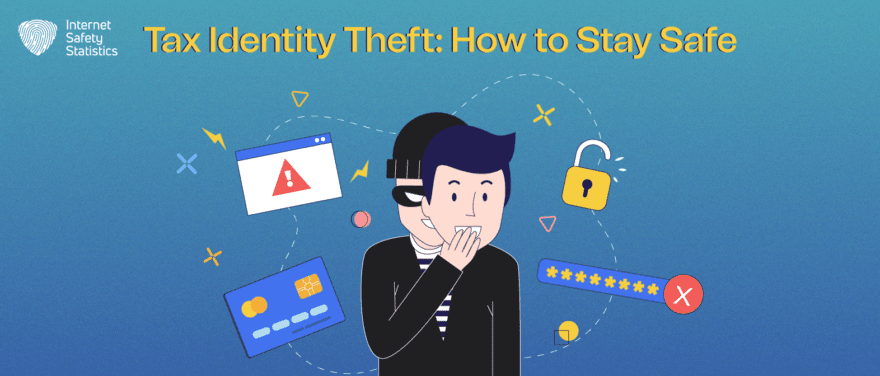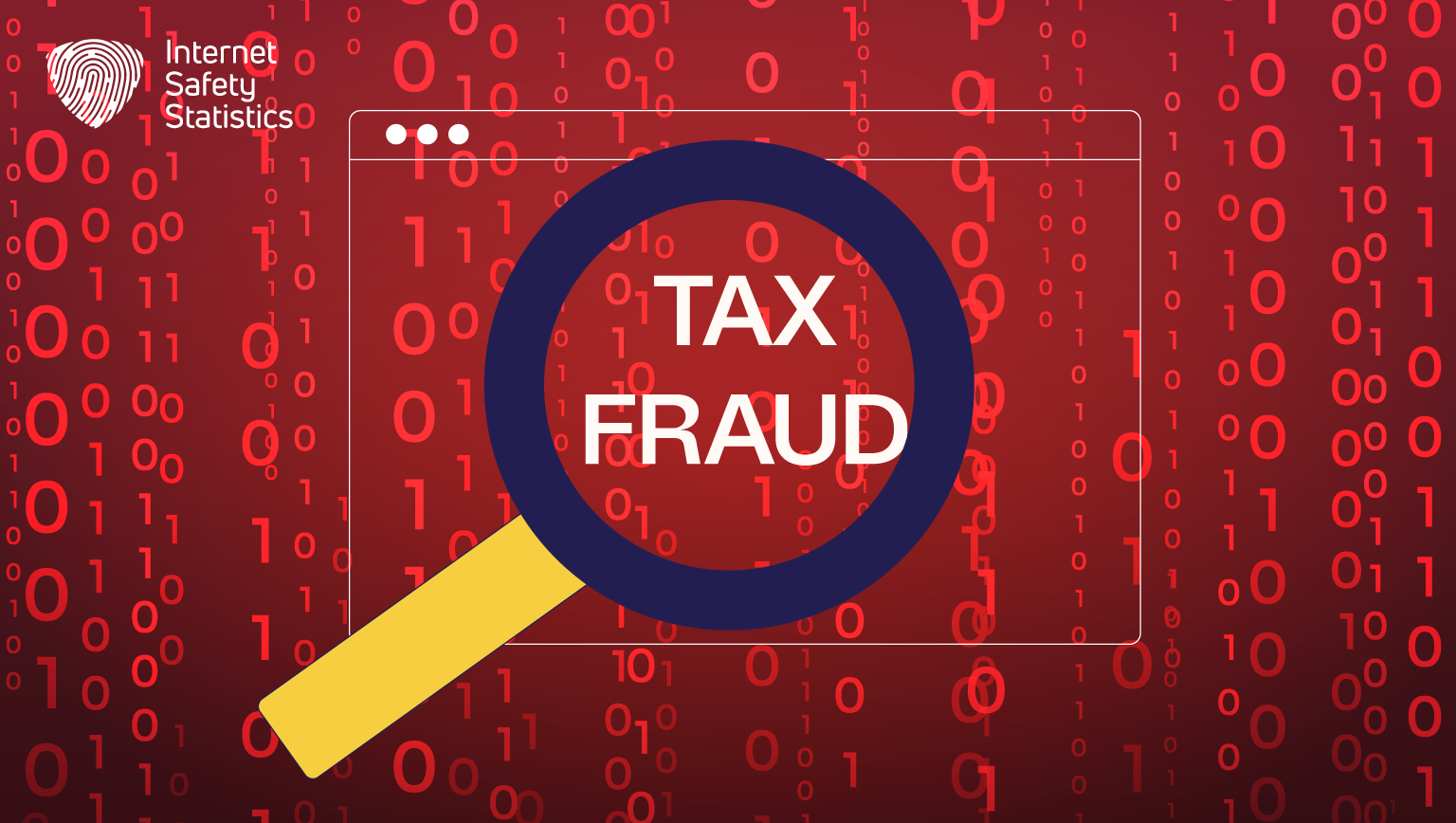
Tax identity theft is a malicious financial crime that has burgeoned in recent years, affecting taxpayers and government revenue alike. This act involves fraudsters using stolen personal information to file fraudulent tax returns in the victim’s name, with the goal of illegitimately obtaining tax refunds. According to the Internal Revenue Service, it can result in someone else claiming your refund, getting credit for taxes you never paid, or even getting a job using your Social Security number. Let’s delve into the depths of tax identity theft, its implications, and strategies to mitigate risks.
Understanding Tax Identity Theft

You may have heard of tax identity theft, but you might not be exactly sure what it is. Tax identity theft happens when someone uses your Social Security Number (SSN) to file a tax return in your name. They may also use your name and other personal information to get a job or obtain government benefits. In most scenarios, the victim remains oblivious to the illicit act until they encounter issues in filing their legitimate tax return.
Theft of this kind can have serious consequences, including fines, imprisonment, and the denial of important government benefits. That’s why it’s so important to take steps to protect yourself from tax identity theft.
Implications of Tax Identity Theft
Tax identity theft is a serious issue that can have a wide range of negative implications for individuals and organisations. Here are some of the implications of tax identity theft:
Financial Loss
Victims of tax identity theft can encounter severe financial setbacks as fraudsters abscond with their rightfully deserved tax refunds.
Legal and Administrative Hurdles
Resolving tax identity theft often involves navigating a complex administrative maze involving various forms, affidavits, and, potentially, legal interventions.
Credit Implications
In certain cases, if the perpetrator utilises the stolen identity for other fraudulent activities, such as opening new accounts or making purchases, the victim’s credit score might be negatively impacted.
Reasons for Tax Identity Theft
There are a few reasons why someone would want to steal your identity and file taxes in your name. They could be trying to get a refund in your name, or they could be trying to get other forms of government assistance in your name.
Whatever the reason, tax identity theft is a serious crime that can have long-term consequences for you. That’s why it’s important to be proactive about protecting yourself and your information.
How to Protect Your Identity From Tax Identity Theft
You might think that your Social Security Number is your most important piece of information when it comes to your identity. But for tax purposes, your Social Security Number is actually the most important information a thief could get their hands on. That’s because the Social Security Administration uses your Social Security Number to match the wages you’ve earned with the taxes you’ve paid. So, if someone steals your identity and uses it to file a tax return, they could end up getting a refund for taxes that you never even paid.
Understanding signs of tax identity theft is crucial for timely intervention.
Rejection of Tax Returns
Your tax return might be rejected if a return has already been filed using your SSN.
IRS Notices
Receiving unexpected IRS notices about discrepancies or additional tax owed could signal identity theft.
Unexpected Tax Transcripts
If you receive tax transcripts that you did not request, it might indicate fraudulent activity.
Preventive Measures
To safeguard yourself from tax identity theft, some pivotal preventive measures can be instituted:
Safeguard Personal Information
Secure all personal and financial documents in locked file cabinets or encrypted digital storage.
Shred Documents
Ensure that all unused or unwanted documents containing sensitive information are shredded.
Secure Online Presence
Employ robust, unique passwords and enable two-factor authentication for online platforms, particularly those related to financial transactions and tax filings.
Avoid Phishing Scams
Be wary of unsolicited communications and do not disclose personal information via email or over the phone unless the identity of the requester is verifiably legitimate.
Tips for Securing Your Personal Information Online
The internet has made it easier than ever before to store and protect your personal information safely. Here are some tips to help you secure your information online:
- Don’t use public networks when accessing personal information. Use a secure network like your home internet.
- Make sure your passwords are secure with unique characters and numbers, and change them regularly.
- Make sure you’re using a trusted website before entering any sensitive information. Check for a valid SSL certificate, which ensures the website is secure and encrypted.
- Use two-factor authentication whenever possible. This adds an extra layer of security by requiring two methods of authentication (like a code sent to your phone).
- Be careful about opening links or attachments that you receive in emails or messages from someone you don’t know or trust.
Actions to Take if You Are a Victim
So, what should you do if your tax identity has been stolen? First and foremost, check your credit report to see if there is any suspicious activity indicated. You can get a free copy of your credit report from the three major credit bureaus—Equifax, Experian, and TransUnion—once a year.
If you’ve been a victim of tax identity theft, you’ll also need to file an identity theft affidavit with the IRS (Form 14039). This will let the IRS know that someone else has filed a tax return using your name and social security number.
In addition, if you receive mail or calls from the IRS asking for verification or demanding payment for taxes due, it’s likely to be a scam. The IRS will never call or email you regarding matters of payment. If this happens to you, contact the Treasury Inspector General for Tax Administration (TIGTA) and file a complaint.
To summarise:
Report to Authorities
If you suspect you’re a victim of tax identity theft, immediately report the incident to your local tax authority or the IRS.
Credit Bureaus
Place a fraud alert on your credit reports by informing one of the major credit bureaus.
Secure Accounts
Change passwords for all important online accounts and monitor them for any unauthorised activities.
Seek Professional Help
Engage with a tax professional or a lawyer to navigate through the administrative processes and ensure all paperwork is correctly filed to resolve the issue.
The Importance of Keeping Records and Shredding Documents
It’s imperative that you keep hard copies of all important documents, including your tax returns and any related documents. The decision to keep or discard records should be based on the type of record, potential impact if lost, and the location to store them safely.
Be sure to shred anything containing personal information, such as Social Security numbers or bank account numbers, before throwing it away. You can buy a portable paper shredder for about $30 – $50 or take advantage of a shredding event in your area sponsored by your local government. It’s an investment worth making in order to protect yourself from the risks of tax identity theft.
It is also extremely important that you keep these documents and records secure in a safe place, such as a lockbox or fire-resistant safe. You should also back up digital files in multiple locations, such as a password-protected folder on the cloud and an external hard drive with encryption technology.
Future Challenges and Considerations
As technological advancements perpetually evolve, so do the techniques employed by identity thieves. The future challenges in combating tax identity theft will involve developing more secure digital platforms, establishing stringent verification processes, and cultivating an acute public awareness regarding cyber hygiene and safeguarding personal information.
Conclusion
Tax identity theft is not merely a personal affront but an intricate social issue that undermines the financial structures of society. A collective and individual commitment to enhanced cybersecurity, coupled with robust regulatory mechanisms, is pivotal to thwarting the expansion of this financial crime. Navigating the digital world necessitates not only reaping its benefits but also adeptly safeguarding against its perils, ensuring that our financial identities remain uncompromised and secure.
Note: For precise guidance and actions, especially if you believe you’ve been a victim of tax identity theft, please consult with a tax professional, legal advisor, or your local tax authority.
